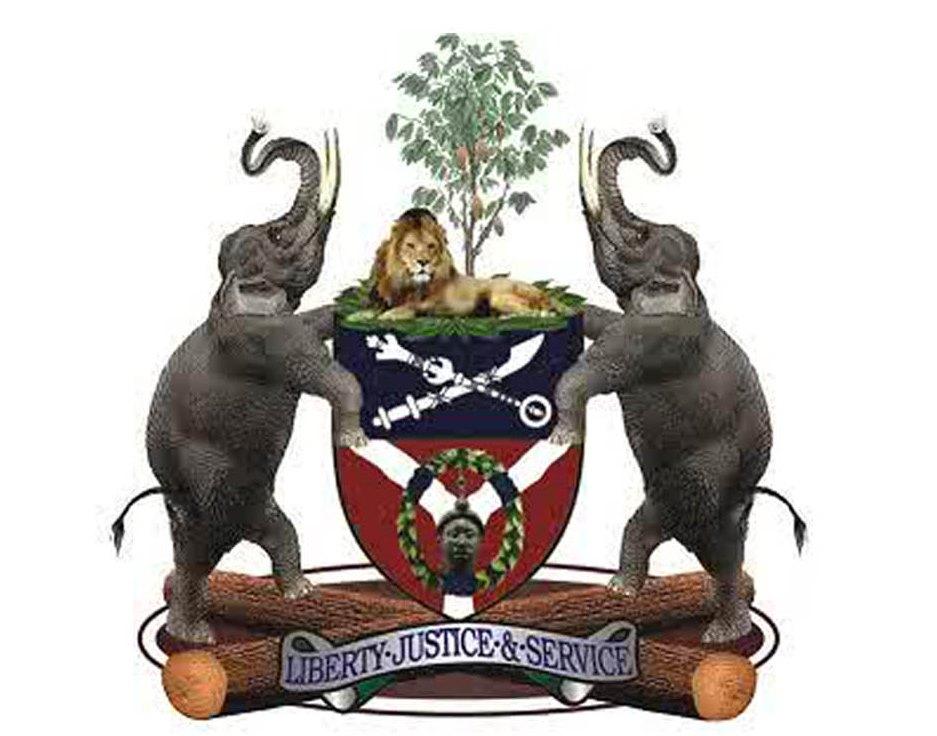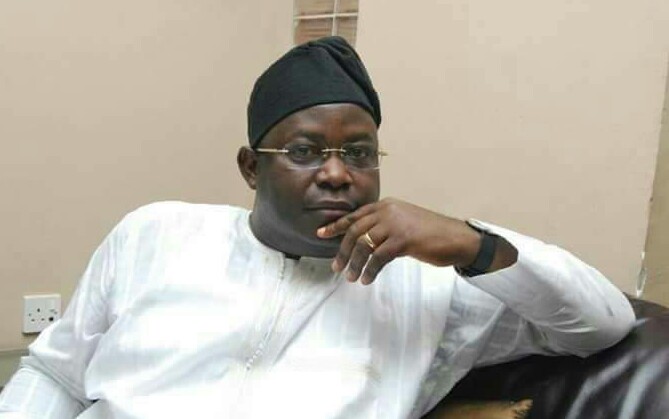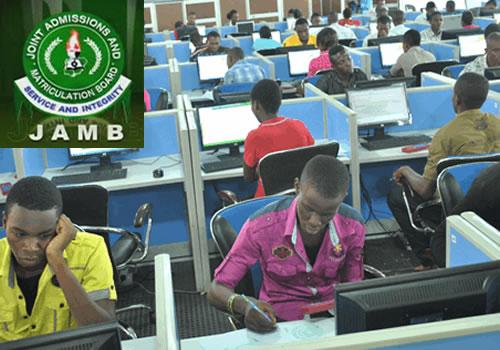Opinion
Osun Debt Portfolio: Beyond The Needless Rhetorics By Tunde Adejumo

Osun Debt portfolio no doubts, remains a subject of controversy given its seeming humongous stock in relation to the State’s streams of revenue. This has become a constant political issue particularly since emergence of Alhaji Gboyega Oyetola as the Executive Governor of Osun State in November 2018.
This is so given the wide departure of narratives of the current administration in the State from the weird and brazen excuses of financial difficulty synonymous with the immediate past administration.
The more financial breakthroughs and successes recorded by the current administration, the more confused men of yesteryears and ‘’the doubting Thomases’’ become. Unfortunately, rather than seeking more knowledge to improve their understanding of Public financial management especially in turbulent time, this set of disillusioned individuals had chosen to take the path of calumny. Their choice understandably is aimed at covering up their many gaffes while in charge.
Truly, the rapidity of financial stability in the State, and the resulting tranquillity in the land demonstrated the current administration’s sagacity and deftness on matters relating to financial resource management and governance. Certainly, the unexpected positive development continues to attract commendations across various camps in the State and the country in general.
It also offers a new paradigm on matters relating to Public financial management in an hopeless situation. This speaks volume of the man in the realm of the State’s affairs and confirms his virtues as a leader. Paradoxically, this feat exposes the limits of the capacity of the men of yesteryear. Ironically, these fallen self-proclaimed ‘’finance guru’’ incidentally had tagged themselves the whizkids, the unusually intelligent and very rare genes among humans.
Going by the level of financial challenges experienced in the State between 2014 through and up to 2018, it was quite indisputable that the State did actually over-trade. The general notion of the public then was that the financial quagmire in the State was an outcome of bullish transformation tendencies wrapped by excessive borrowings, borrowings obviously beyond sustainable level.
To the few who belong to the contrary school of view, the financial difficulty in the State then was a case of ‘’careful projection gone awry’’. To this class of people, the State’s financial turbulence was one of those costly unforeseens. Unprecedented fiscal disruption across the country peculiarly triggered by financial mismanagement (such as uncontrolled theft of crude oil, corruption, etc) at Federal government’s level, and exacerbated by global financial turmoil (occasioned by plummeted crude oil prices). Whatever the explanations adduced, the fact is that the State was at that time aground financially. Unpaid salaries, Bills and financial obligations kept mounting, and the State’s ISPOs (Irrevocable standing payment orders) shockingly turned to mere sheets of paper due to insufficient funds in government’s coffers. It was indeed a very terrible period nobody prays to come up again.
Given the details above, it is unthinkable that somebody, somewhere in the name of politics (or other motives) will get pre-occupied in building up negative narratives to discredit the current administration, generally admired for its financial prowess, determination and sincerity of purpose. No doubts, the current’s administration in the State had truly surpassed expectation in terms of her ability to change the narratives on ground. From regular and timely payment of workers’ monthly salary, to construction of roads, renovation and construction of health facilities, dredging of rivers and canals, security of lives and properties among others.
Rather than seeking further insights on matters relating to contemporary Public financial management, it is quite surprising that a group of people in the State, who are bewildered about the current administration’s level of accomplishments in the State had decided to go the route of needless rhetorics about the State’s financial situation. On the forefront of this mission is the erstwhile commissioner of Finance in the State in person of Dr. Wale Bolorunduro who has always being cantankerous on all matters relating to the current administration. It is shocking that the named former commissioner could throw caution to the wind by continuously making unsavoury comments capable of instigating members of the public against the current administration. His various utterances, speculations, and gesticulation about the current administration in the State could be said to be antagonising and uncouth for his status.
Though, our office had determined not to join issues with Dr. Bolorunduro on his unabated campaign of calumny in the State, his recent publication in the current edition of ‘’Osun Defender ‘’, a weekly local newspaper in the State however could be said to be comical and motivates this rebuttal. This is with a view to putting the record straight before members of the public before such write-up begin to generate the usual possible distraction and animosity as might be anticipated by the writer.
To start with, why would the issue of the State’s total Debt stock become a subject of argument when in fact, there is a Federal repository of Debt stocks in the country?. For avoidance of doubts, the Federal Debt management office (DMO) keeps records of all borrowings by both the Federal and States’ governments in the country. Details of States’ debt stocks are of course, accessible from the named parastatal of the Federal government.
On the issue of the State’s monthly loan repayments, and monthly loan deductions from the Statutory receipts, these are also verifiable details from both the offices of Accountant-General (AG) of the Federation and Federal ministry of Finance (FMoF). Therefore, the unending narratives on Osun State’s Debt Stock and loan repayments from the former Commissioner of finance, in our view are mischievous and needless.
Cocerning the State’s total debt portfolio which Dr. Bolorunduro think is secretive (as it was during his time in the State’s ministry of finance), as usual, our office actually has nothing to hide. According to our records, the State’s total debt portfolio inherited by the current administration was truly well over =N=200billion (This includes non-borrowing domestic arrears).
On the issue of deductions from the State’s monthly statutory accounts, and fund applied so far for loan repayments by the current administration, as at November 2018, monthly direct deductions for repayment of the State’s loan was =N=2.61billion. This excludes other deductions from the State’s IGR for internal loans repayments This amounts to over =N= 130million (=N=134.96million). Following the full repayments of the State’s =N=30billion bond and =N=11.4billion Sukuk in 2019 and 2020 respectively however, direct deductions from the State’s monthly revenue had reduced to =N=1.8billion, while indirect deductions (from the State’s IGR) for loan repayments subsists (about =N=390million). Total deductions from the State’s statutory revenue for the month of January, appropriated recently was =N=1,836,968,138.03 (One billion, eight hundred and thirty six million, nine hundred and sixty eight thousand, one hundred and thirty eight Naira, three kobo) only, against a Gross statutory allocation of =N=1.46billion. This can be verified officially from the appropriate agency of the FGN as earlier indicated. I hope our egg-head Doctor will now agree that the State’s government’s claim of negative statutory receipt for the referenced month actually add up contrary to his insinuation.
For avoidance of doubts, we wish to add that till date, the current administration has applied over =N=70billion for the State’s loan repayment.
While claiming full knowledge of the State’s financial affairs inclusive of the State’s level of exposure during the preceding administration, Dr. Bolorunduro perhaps needs to be reminded that he served as the State Commissioner of finance under the last administration for only a period of three years ending in November 2014. One therefore wonders why he keeps claiming to be a Registry of all the financial transactions during the whole 8 year tenor of the immediate past administration. It would be recalled that our office had earlier raised concern on his usual contentious statistics and tenuous narratives about the financial affairs of the current government in the State.
In his referenced publication, the former commissioner, also made an assertion that monthly loan repayment ordinarily should be met from the State’s Internally Generated Revenue (IGR). As fiscally logical as this argument sounds, it is quite astonishing that this was not the case when the self-acclaimed Financial Guru was in charge of the State’s finance. As a matter of fact, the State’s IGR was at best, only about 25% of the State’s loan repayment throughout his 3 year tenor as Finance commissioner in the State.
Further to these clarifications of ours, we are awaiting part two of Dr. Bolorunduro’s recent boastful write up where he assured to give an expository presentation of the State’s Debt stock and loan repayments. Osun Debt Management Office is always ready to engage Dr. Bolorunduro or any of his cohorts on the State’s Debt issues so that matters relating to such can be laid to rest finally and consequently put an end to his needless rhetorics about Osun debt portfolio.
Tunde Adejumo, PhD
Director-General, Osun Debt Management Office.
-

 News4 days ago
News4 days agoUpdated: Oyo Police Parade Arrested Yoruba Nation Agitators
-

 News3 days ago
News3 days agoJust In: Adeleke Appoints Former Osun Commissioner For Finance, Bolorunduro Chairman Of Living Trust Mortgage Bank
-

 News4 days ago
News4 days ago‘21 Chibok Girls Return With 34 Kids; 48 Parents Die Of Trauma’
-

 News1 day ago
News1 day agoBreaking: JAMB Directs CBT Centres To Arrest Parents Found Near Facilities During UTME Exercise



